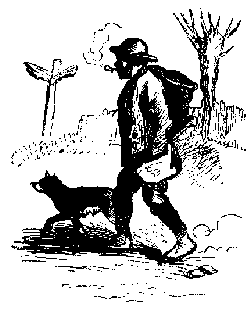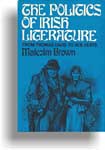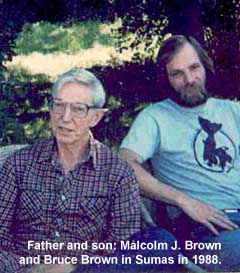Chapter Fourteen
The Agony of Fenianism
IN THE TWELVE since Stephens fled from Ireland, the balance of forces had altered radically in the Fenians' disfavor. The government was now alert and prepared. The garrison was reinforced. Corroborating Devoy's analysis of the disaffection of the Irish soldiers, the government had removed the Irish regiments and replaced them with safe English and Scottish units. Informers had been successfully planted inside the Fenian high command, both in Ireland and America, so that the English now controlled the element of surprise. Meanwhile the Fenians' absolute strength had diminished. Because of police raids and confiscations the number of available rifles was smaller than it had been a year earlier. The veteran American soldiers who were to provide expert field command were now jailed or deported. The army available to Fenian generals was reduced back to a mass of untrained irregulars, to "men who are insubordinate by temperament, without organization, without any framework," said General Cluseret, who added, "This sort of thing wears out life quickly."
All these facts were general knowledge. At one end of the spectrum, Dr. Cullen, recently made Ireland's first cardinal, wrote an American bishop just at this time: "The Fenians are not all so strong as they were last year." At the opposite end, Devoy, who to the end of his life thought it shameful not to have risen in February 1866, argued that a rising in February 1867 was "foredoomed." The new Fenian directory was not deterred by these judgments, but pressed forward toward immediate insurrection, come what might, and even with the certainty of losing. Devoy in jail got a message from the high command: "The fight will be in about three weeks, but we'll be badly beaten."
"The day" was set for February 12, 1867, then changed to March 5. The countermanding order was intercepted by the police at Cahirciveen, O'Connell's old home village in west Kerry, so that it failed to reach the local centers. There the Fenians rose on the wrong date, captured the police barracks, and in rummaging through the police records, discovered the order to delay action. So instructed, they then returned to their homes, leaving the terrorized gentry, most of them clansmen of the Liberator, barricaded with their silver plate behind sandbags in the hotel. A premature rising was also pressed forward in Chester. Captain MacCafferty had devised a plan to raid the Chester arsenal for rifles, then to seize the ships in the harbor and set sail across the Irish Sea to Dublin. On the incorrect date all his forces converged on Chester Castle as instructed, and MacCafferty set out by train from Manchester to take command of the raid. Along the way his train was sidetracked while one trainload after another filled with troops passed through, also headed for Chester. His adjutant, a long-time Fenian named Corydon, had been discovered by the police to be a homosexual and had been persuaded to turn informer.
On the eve of the correct day for the rising, a blizzard settled down over the British Isles, bringing the heaviest snowfall in memory. In the storm a general insurrection was unthinkable, and only here and there did the centers respond. At Cork four thousand men came out with their fifty rifles and their one American officer, attacked four police barracks, and were repulsed. In Dublin three thousand men attempted to converge at Tallaght, south of the city. A police ambush awaited them there; and as they fled back toward Dublin, hundreds were arrested at the bridges over the canal. Fenians in Limerick, Clare, Louth, and Waterford had local successes. The most vital single spot in the Fenian battle plan was at Limerick Junction near Tipperary. An American named Godfrey Massey was placed in charge of that sector. As he stepped off the train from Cork, he was arrested-by prior arrangement with the police, according to his military superiors. The charge was unproved, though Massey's claims to high rank in the Confederate army were shown to be fraudulent, and he did become the most cooperative witness for the government prosecutor in the Fenian trials that followed. Briefly told, the story of the Fenian insurrection of 1867 was defeat on all fronts and total collapse within forty-eight hours. The amateur Smith O'Brien had been four times longer in the field.
II
The surprise of the insurrection was not that it was so weak, but that it had occurred at all. Why did the leaders call the men out? Why did the men respond? Even if Massey was a provocateur, it seems doubtful that provocation was required to set the directory in motion. Captain MacCafferty, for one, needed no urging. He was made ofthe same stuff as Tolstoy's Dolokhov, a killer never quite himself unless he could smell burning gunpowder. But Kelly, the commander in chief, appears to have believed that the blow on Irish soil would open the way for some form of American diplomatic support. He had stationed men in Washington to call on President Andrew Johnson with a demand for recognition at the cabled news of the first shot, and he was crushed by the report that Johnson had discourteously turned them away.
The dominant motive for the rising was more probably a feeling among the Fenians, both high and low, that the movement could not depart gracefully without some unequivocal gesture to honor its bold promises and to fix its defeated principles unmistakably in the record of history. Like Emmet and Rossa in Green Street Courthouse, they thought it unmanly to go down without a scene. Stephens had talked forevermore about the difference between the "spouters" and the doers, but the difference had never been acted out. Until it was, the Fenians were denounced by their own words as spouters of an especially contemptible breed...
|
|
Table of Contents
|

|
Astonisher.com is pleased to offer these excerpts from The Politics of Irish Literature by Malcolm Brown...
Praise for
The Politics of Irish Literature |
 |
|
"This brilliant study of the intersection of politics and literature in Ireland amounts to a dazzling portrait gallery. Reading it one feels about one the breath, warmth, and passions of the dead all come alive again."
-- Sean O'Faolain in the Manchester Guardian
"Mr. Brown's masterpiece has made me want to hire a nearby housetop and recite whole chunks to every passerby..."
-- Michael Foote in the London Evening Standard
"The author of the best book on George Moore now gives us what is in all likelihood the best book on the politics of modern Irish literature."
-- Virginia Quarterly Review
|
|

University of Washington Professor Malcolm J. Brown (1910 - 1992) with his son, Bruce Brown, in Sumas, WA, July 1988.
|
Additional reading -- Malcolm Brown's George Moore: A Reconsideration. Also see Bruce Brown's commentary on The History of the Corporation for Malcolm Brown's contribution to that work.
|
|
|






